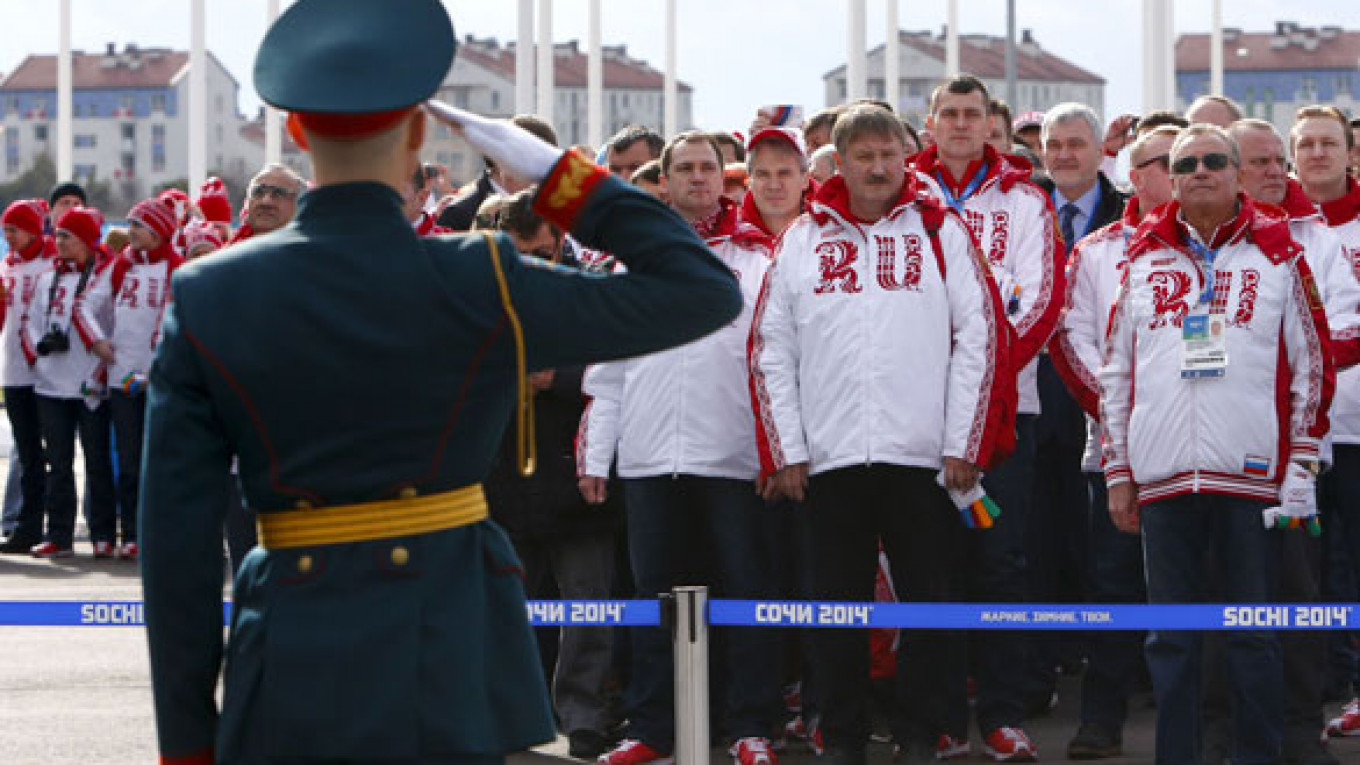SOCHI — Hosting the Winter Olympics at great cost in Sochi is unlikely to give the Russian economy a big boost, ratings agency Moody's said Wednesday, undermining one of President Vladimir Putin's main goals at the Games.
Putin has staked his personal and political prestige on hosting a successful Games, and promised the vast sums spent on Sochi would turn the Black Sea resort into an attractive tourism destination and give the Krasnodar region around it a lift.
But Moody's said in a report that uncertainty over the long-term legacy overshadowed the benefits of the Games, which are expected to cost more than $50 billion and have been marred by reports of widespread corruption and waste.
"While the central government can comfortably accommodate its share of the cost, the reputational benefits of hosting the Olympics have been undercut by the high cost of the event and other bad publicity," Moody's said.
Putin and his government have been banking on the Games giving Russia's stuttering $2.1 trillion economy a boost but hopes that the Russian ruble would firm because of the so-called "Sochi effect" have proved unfounded.
The ruble is down more than 5 percent against the dollar since the start of the year and economic growth this year is expected to reach about 2 percent, much slower than in Putin's first eight-year spell as president until 2008.
Moody's said the Games would have a neutral impact on Russia's debt rating, that fiscal pressures on Sochi and the Krasnodar region would weigh on their credit profiles, and the outcome for Russian firms involved in the Games would be mixed.
State companies and private investors, including wealthy Putin allies who have sought political and financial benefits by investing in the construction of hotels and other infrastructure, may not cash in, according to Moody's.
"The long-term gain depends on the hotel sector because the majority of the private investors invested in the hotel segment," said Sergei Grushinin, an assistant vice president and analyst at Moody's.
"It depends on the Russian government's efforts to attract new tourists to Sochi which we estimate need to increase by 2 1/2 or three times after the Olympics to ensure that the majority of the hotels are full."
Such efforts would depend on Sochi being affordable and more attractive than European holiday destinations, which are now preferred by many Russians and are well within their means.
State-owned banks that provided loans or invested in the equity of companies that helped transform Sochi from a Soviet-era resort into a modern sports hub would see a negative impact on their credit rating, the report said.
Economists say the benefit of hosting major sports events tends to be fleeting. Britain got a short-term GDP boost from staging the London 2012 Games but the economy had gone into reverse again by the end of the year.
Almost the only winners from Sochi will be global corporate Olympics sponsors such as Procter & Gamble and General Electric, it said. For them, the Games would have a positive impact on their credit ratings because of deals they concluded giving them exclusive worldwide marketing rights for their products.
Russia's record on democracy and human rights has been under scrutiny in the run-up to the Games, and the reports of corruption and cronyism — which Putin denies — have cast the political system he created in Russia in a bad light.
Because of these problems, hopes of an economic lift for Sochi and the Krasnodar region look increasingly important as he tries to portray the Olympics as a success for Russia.
"It is largely thanks to the Olympic project that this gem on Russia's Black Sea will be able to fully realize its cultural and tourist potential, to attract guests not only with its unique natural environment but by also offering substantial infrastructure and hospitality options," Putin said in Sochi on Tuesday.
Although there may be no big economic gains for Russia, Moody's and Fitch Ratings both said its economy was big enough not to suffer a major setback.
"Overall, the widely reported $50 billion costs relating to the Winter Olympics are less than 2.5 percent of our 2013 GDP estimate for Russia. With some costs privately funded, the impact on the sovereign's finances is minimal," Fitch said.
A Message from The Moscow Times:
Dear readers,
We are facing unprecedented challenges. Russia's Prosecutor General's Office has designated The Moscow Times as an "undesirable" organization, criminalizing our work and putting our staff at risk of prosecution. This follows our earlier unjust labeling as a "foreign agent."
These actions are direct attempts to silence independent journalism in Russia. The authorities claim our work "discredits the decisions of the Russian leadership." We see things differently: we strive to provide accurate, unbiased reporting on Russia.
We, the journalists of The Moscow Times, refuse to be silenced. But to continue our work, we need your help.
Your support, no matter how small, makes a world of difference. If you can, please support us monthly starting from just $2. It's quick to set up, and every contribution makes a significant impact.
By supporting The Moscow Times, you're defending open, independent journalism in the face of repression. Thank you for standing with us.
Remind me later.






